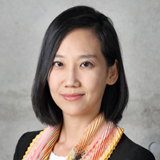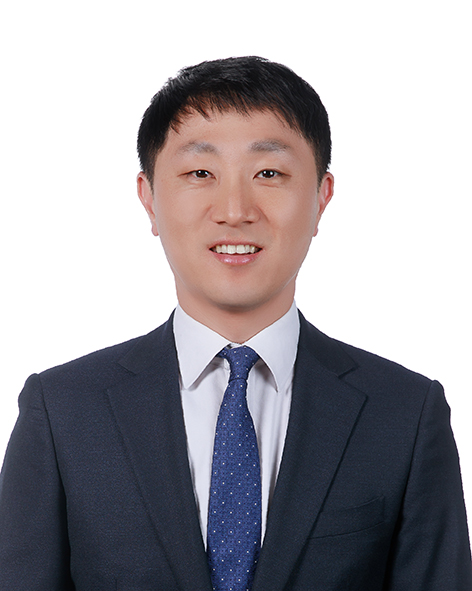Executive Summary
For over 70 years, the United States has been regarded as the unquestionable leader in global affairs. However, the 2008 global financial crisis exposed US vulnerabilities and many have begun to speculate that the US may no longer be the dominant hegemon of the 21st century. Signs of a US decline have coincided with the meteoric rise of China, whose growing influence has challenged the status quo in Asia and around the world.
Most recently, however, US economic recovery and the shale gas revolution have hinted at the possibility that the US is making a comeback. At the same time, Chinese economic growth appears to have slowed down. These developments present an interesting opportunity for South Korea given its unique relationships with the two countries.
The US-China competition can be narrowed down to the following: will China continue to rise and challenge the US? Or will the US retain its primacy? Proponents of the former suggest that China will continue to expand its economic power to challenge the US. Supporters of the latter point out that global leadership requires more than economic power. They argue that a combination of political influence and the ability to promote global norms and values are requirements as well. This report examines which of the two countries South Koreans see as the global leader and as South Korea’s future partner.
According to the Asan Institute’s public opinion surveys, South Koreans maintain a favorable attitude toward the US. Since the Asan Institute first began surveying country favorability in 2010, the US has remained above the neutral score of 5.0 on a zero-to-ten scale, which far exceeds the scores of other neighboring countries. Even as South Korea improves economic ties with China, only 50-60% of South Koreans described ROK-China relations as being cooperative while 70-80% said the same about the current ROK-US relations.
What South Koreans associated the most with the US were capitalism (28.6%), military strength (26.7%), and democracy (20.6%). These responses make sense given the American political, economic, and military influence in global affairs. When asked about the United States’ historic relationship with South Korea, the answers were mixed. For example, there was an overwhelming agreement that the US made South Korea’s economic development possible. Also 63.2% disagreed with the statement that the US was an obstacle to democratization. At the same time, 61.4% of South Koreans blamed the US for the division of Korea. When asked about shared interests, a surprising number (44.5%) stated that the two countries did not share the same interests. The results indicate that South Koreans today have a pragmatic assessment of the relationship.
Regarding the US-China competition, South Koreans were in general agreement that the US remains the global superpower. 84.6% of South Koreans believed that the US currently possesses the greatest political influence and 63.6% said the same about its economic influence. Only 4.9% and 29.9%, respectively, thought China has the greatest political and economic influence. However, South Koreans assessed that China will one day surpass the US economically and reach relative parity in political influence. Specifically, 70.5% of South Koreans thought China will become the future economic superpower while only 20.2% said the same about the US. In terms of future political influence, 47.6% chose the US while 39.5% sided with China.
We found that South Koreans consider the two countries as superpowers for different reasons. For the US, 53.0% pointed to its economic and military strength (size of economy + military spending) and 24.5% to its science technology and culture as main reasons. On the other hand, 52.2% identified China’s potential (world’s biggest population and massive territory) as its biggest asset. 37.0% said China was a superpower for its economic and military strength (size of economy + military spending).
While the competition for hard power remains fierce, South Koreans sided with the US in terms of soft power. First, they were more favorable toward the expansion of US culture (68.9%) than Chinese culture (57.2%). This was especially the case among South Koreans in their 20s and those who were 60 and older (20s: 77.4% for the US, 54.8% for China; 60 and older: 76.2% for the US, 56.1% for China). When asked about the importance of the two countries’ languages, 66.7% of South Koreans answered that English was the more important language. In contrast, less than half (27.2%) said the same about Chinese.
Another crucial factor for South Koreans was their favorability of President Barack Obama. Unlike President Obama’s domestic approval rating, South Koreans’ leadership favorability ranks him higher than any other world leader. Since 2013, when the Asan Institute first began measuring leadership favorability, President Obama has scored over 6.0 on a zero-to-ten scale. This is an impressive feat especially given the rising popularity of President Xi in the midst of an improving ROK-China relations. As of March 2015, President Obama’s favorability rating stands at 6.21, which is even higher than the rating for the United States (5.93). President Xi’s rating is 5.24.
South Koreans valued the US as the better international leader in large part due to its soft power. 72.4% positively assessed US leadership in global affairs while 52.1% said the same about China in 2015. While China’s number increased from last year, it still lagged behind the US. This is one of the reasons why many remain skeptical of China’s ability to replace the US. If the US and China continue their competition, South Koreans preferred the US (58.7%) over China (30.5%) as South Korea’s future partner.
Concerns of a US decline appeared to have little impact on South Koreans’ view of US leadership. This was particularly the case for young South Koreans, who assessed US leadership much more positively than China’s. In particular, 79.9% and 72.8% of those in their 20s and 30s, respectively, assessed the US as a better global leader than China. Moreover, 74.8% chose the US over China as South Korea’s future partner. Regarding the importance of the two countries languages, 75.5% of South Koreans in their 20s chose English over Chinese (19.9%).
The so called G2 competition between the US and China has intensified in Northeast Asia but South Koreans have continued to support US leadership. Even with the understanding that China will one day surpass the US economically, they still chose the US as the country better equipped to exhibit global leadership due to its political influence and soft power. These findings tell us that while superpower status can be obtained with a big economy, global leadership requires more than economic superiority. In that sense, the United States, despite its imperfections, remains the global leader for South Koreans.

 Facebook
Facebook Twitter
Twitter

